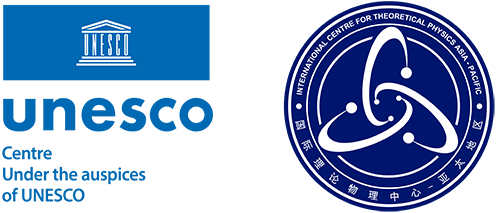From 20-23 May 2024, OWSD, in collaboration with Nepal-based OWSD Early Career fellows, alumnae, members, and the Kathmandu Institute of Applied Science (KIAS), is organizing the GAMECHANGERS workshop hosted by KIAS. This workshop will serve as a platform to catalyze research, policy, and advocacy efforts that will feature prominently in OWSD's future activities. Specifically tailored for the 2020 and 2019 cohorts of Early Career Fellows, participants have been competitively selected based on fellows' proposals outlining how they will integrate lessons learned at the workshop in their own institutes.
The workshop will provide a forum for women scientists and policymakers, equipping them with tools such as gamified advocacy tools and policy templates, along with skills in leadership, communication, and advocacy. The primary focus is on advancing gender equality in STEM and effecting gender policy changes in scientific and academic institutions. Through a combination of high-level consultations and participatory engagement methodologies, the event aims to lay the groundwork for OWSD to amplify research and advocacy endeavors and promote gender equity in Science and Technology.
Over the four days of the workshop, participants will work together with expert trainers to produce a number of different outcomes:
- Development and testing of the advocacy game
Creation and testing of a gamified advocacy tool, integrating critical reflections, brainstorming prompts, and collection of policy ideas aimed at addressing the challenges faced by women in STEM from developing countries. The game will serve as an engaging and innovative means to promote dialogue, generate ideas, and propose actionable policy recommendations.
- Policy recommendations and manifesto
Formulation of a comprehensive list of high-level policy recommendations and a manifesto specifically addressing the barriers and challenges experienced by women scientists in developing nations. This output will serve as a strategic document advocating for gender equity and addressing the identified issues within the field of STEM. It will also contribute to position UNESCO OWSD as one of the leading global networks for the provision of quantitative and qualitative data on the participation of women from the developing world in science and technology.
- Policy brief templates and institutional guidelines
Development of scalable policy brief templates and guidelines for gender policies within institutions. These resources can be utilized by women scientists, institutions, and NC to formulate gender-inclusive policies and frameworks.
Topics to be covered may include: Introduction to policymaking, the policy process/cycle, and policy evaluation; How to write a policy brief to influence policymaking; Gender-Responsive Policymaking; What is a gender policy and why it is important; Gender budgeting; Best practices of gender policies in research/science institutions.
A group activity will be developed around analysis of policies of participants' institutions from a gender perspective.
- Empowerment tools and strategies
Strengthening the leadership and advocacy skills of participants, including scientists, policymakers, and change-makers, through various workshops on leadership, communication, negotiation, and challenging conversations. Scalable tools and strategies to empower women scientists and NC in addressing gender-related challenges in the scientific domain, ensuring the adaptability of the gamified advocacy tool and other resources.
Key themes to be covered include: The power of non-verbal communication, Engaging with status and authority, Developing presence and inner confidence, Storytelling with purpose – influence and advocacy
- Established advocacy and networking framework:
Scalable framework for advocacy and networking among women scientists, NC, and institutions, facilitating the widespread implementation of the gamified advocacy tool and other resources, e encouraging the formation of networks and collaborations among participants for continued advocacy efforts.
- Communication and dissemination strategy
Creation of a comprehensive communication and dissemination strategy specifically designed to promote and distribute the formulated high-level policy recommendations, manifesto, and other tools to a wide array of stakeholders, institutions, and the general public.
The workshop will be the first step in creating a sustained and impactful platform that not only empowers women scientists but also leads to tangible advocacy initiatives and actionable strategies for long-term change in gender equality in STEM within scientific institutes in developing regions.








